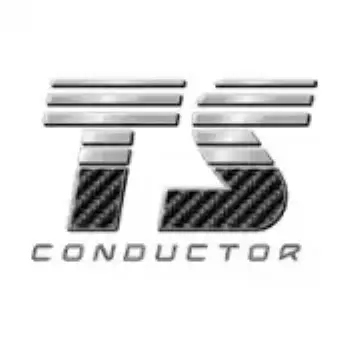Application Design Engineer

TS Conductor
This job is no longer accepting applications
See open jobs at TS Conductor.See open jobs similar to "Application Design Engineer" Climate Draft.Design
Huntington Beach, CA, USA
Posted on Dec 20, 2024
Position Overview
TS Conductor is a fast-growing company focused on reducing the carbon footprint in the world with their innovative product. If you are hard-working and dedicated and believe in working for a better world, TS Conductor is an ideal place to get ahead.
Essential Functions
Technical Knowledge: Familiar with Transmission and Distribution T&D industry. Familiar with basic power engineering concepts: AC, DC power transmission, power factor, phase angle, voltage transmission efficiency, sag tension analysis and theoretical understanding of material’s stress strain relationship. Thermal rating and material science understanding of heat capacity, current heating and thermal exchange forms: solar radiation heating, convection heat loss etc.
Engineers should have a solid foundation in the relevant engineering principles and concepts related to their field. They should be familiar with engineering tools, software, and technologies commonly used in their industry. The position requires the ability to read and interpret gauges and record measurements. Basic understanding of ISO-9000, and proficient with Microsoft Office Suite or related software program.
Analytical and Problem-Solving Skills: Engineers should have strong analytical skills to analyze complex problems and propose effective solutions. They should be able to break down problems into smaller components, conduct research, gather data, and apply critical thinking to identify the root causes and develop innovative approaches to problem-solving.
Attention to Detail: Engineers must pay close attention to detail, ensuring accuracy in their work. They should be meticulous in following engineering standards, specifications, and documentation requirements.
Communication Skills: Effective communication is crucial for engineers to collaborate with team members, understand project requirements, and present their ideas or findings. They should be able to convey technical and design information clearly, both verbally and in writing. This position requires proficiency in the ability to speak and read English.
Teamwork and Collaboration: Engineers often work as part of multidisciplinary teams. They should be able to collaborate effectively, share knowledge, and contribute to team goals. Being a good team player and demonstrating interpersonal skills is important in achieving project objectives.
Adaptability and Learning Agility: Engineers should be adaptable to new technologies, changing project requirements, and evolving industry practices. They should be willing to learn and acquire new skills quickly as the engineering field continues to advance.
Time Management and Organization: Engineers need to prioritize tasks, manage their time effectively, and meet project deadlines. They should be able to work on multiple assignments simultaneously and maintain a well-organized workflow.
Professional Ethics: Engineers should demonstrate a strong sense of professional ethics, integrity, and responsibility. They should adhere to engineering standards, regulations, and safety protocols. Maintaining confidentiality and respecting intellectual property rights are also important aspects of professional conduct.
Continuous Learning: Engineers should have a growth mindset and a commitment to lifelong learning. They should actively seek opportunities to enhance their technical skills, stay updated with industry trends, and pursue professional development activities.
Leadership Potential: While not always a requirement at the junior level, possessing leadership qualities and the ability to take initiative can contribute to career growth. Engineers who show potential in leading projects, taking ownership, and mentoring others may have increased opportunities for advancement.
Incentives
The Application Design Engineer position works primarily in an office environment. Occupational health and safety practices are essential in manufacturing environments and all employees are expected to adhere to safety protocols and wear appropriate protective equipment when necessary.
TS Conductor is a fast-growing company focused on reducing the carbon footprint in the world with their innovative product. If you are hard-working and dedicated and believe in working for a better world, TS Conductor is an ideal place to get ahead.
Essential Functions
- Foster a zero-injury culture: conduct risk assessments and implement safety protocols to minimize hazards and ensure a safe working environment.
- Develop and implement actions to upscale the TS engineering process and create engineering standards.
- Analyze user requirements and define functional specifications.
- Develop application design and requirements to support testing and workflow projects in line with established standards.
- Partner with and provide technical engineering support to the sales and marketing team, such as reports, whitepapers, training guides, and responses to customer requested validation information.
- Assist the quality department in testing, reporting QC data, and making sure the QC validation procedure meets conductor specification.
- Perform sag/tension and electrical calculations to determine the optimal conductor for the project capacity requirement.
- Be familiar with the power industry’s codes and standards such as NESC, GO-95, RUS, NFPA 70E standards, and NERC/FERC code compliance code.
- Utilize PLS-CADD software and in-house engineering tools to create project analysis.
- Understand conductor specification and common information exchange format.
- Assist other engineering departments to implement proper conductor manufacturing material specification.
- Interact with customers and collect proper project information, design and/or modification, and generate the relevant reports.
- Support project management tracking and testing actions related to DOE and RAMP projects.
- Follow company rules and guidelines.
- Other duties may be assigned as needed.
Technical Knowledge: Familiar with Transmission and Distribution T&D industry. Familiar with basic power engineering concepts: AC, DC power transmission, power factor, phase angle, voltage transmission efficiency, sag tension analysis and theoretical understanding of material’s stress strain relationship. Thermal rating and material science understanding of heat capacity, current heating and thermal exchange forms: solar radiation heating, convection heat loss etc.
Engineers should have a solid foundation in the relevant engineering principles and concepts related to their field. They should be familiar with engineering tools, software, and technologies commonly used in their industry. The position requires the ability to read and interpret gauges and record measurements. Basic understanding of ISO-9000, and proficient with Microsoft Office Suite or related software program.
Analytical and Problem-Solving Skills: Engineers should have strong analytical skills to analyze complex problems and propose effective solutions. They should be able to break down problems into smaller components, conduct research, gather data, and apply critical thinking to identify the root causes and develop innovative approaches to problem-solving.
Attention to Detail: Engineers must pay close attention to detail, ensuring accuracy in their work. They should be meticulous in following engineering standards, specifications, and documentation requirements.
Communication Skills: Effective communication is crucial for engineers to collaborate with team members, understand project requirements, and present their ideas or findings. They should be able to convey technical and design information clearly, both verbally and in writing. This position requires proficiency in the ability to speak and read English.
Teamwork and Collaboration: Engineers often work as part of multidisciplinary teams. They should be able to collaborate effectively, share knowledge, and contribute to team goals. Being a good team player and demonstrating interpersonal skills is important in achieving project objectives.
Adaptability and Learning Agility: Engineers should be adaptable to new technologies, changing project requirements, and evolving industry practices. They should be willing to learn and acquire new skills quickly as the engineering field continues to advance.
Time Management and Organization: Engineers need to prioritize tasks, manage their time effectively, and meet project deadlines. They should be able to work on multiple assignments simultaneously and maintain a well-organized workflow.
Professional Ethics: Engineers should demonstrate a strong sense of professional ethics, integrity, and responsibility. They should adhere to engineering standards, regulations, and safety protocols. Maintaining confidentiality and respecting intellectual property rights are also important aspects of professional conduct.
Continuous Learning: Engineers should have a growth mindset and a commitment to lifelong learning. They should actively seek opportunities to enhance their technical skills, stay updated with industry trends, and pursue professional development activities.
Leadership Potential: While not always a requirement at the junior level, possessing leadership qualities and the ability to take initiative can contribute to career growth. Engineers who show potential in leading projects, taking ownership, and mentoring others may have increased opportunities for advancement.
Incentives
- Vacation and Sick time
- Benefits
- 401(K) employer match
- Holidays
- Referral Rewards program
- Learning culture
- Bachelor's degree required. BS, in aerospace, material science, mechanical or power engineering is preferred. Master’s degree is a plus.
- Strong project management skills, including the ability to prioritize tasks and meet deadlines.
- Excellent communication and interpersonal skills.
- Strong attention to detail and organizational skills.
- Proficiency in Microsoft Office Suite and PLS-CADD software is a plus.
- Ability to maintain a professional, positive attitude.
- Must be able to successfully pass e-Verify background check.
- Complete other duties/projects as required and/or assigned.
The Application Design Engineer position works primarily in an office environment. Occupational health and safety practices are essential in manufacturing environments and all employees are expected to adhere to safety protocols and wear appropriate protective equipment when necessary.
This job is no longer accepting applications
See open jobs at TS Conductor.See open jobs similar to "Application Design Engineer" Climate Draft.